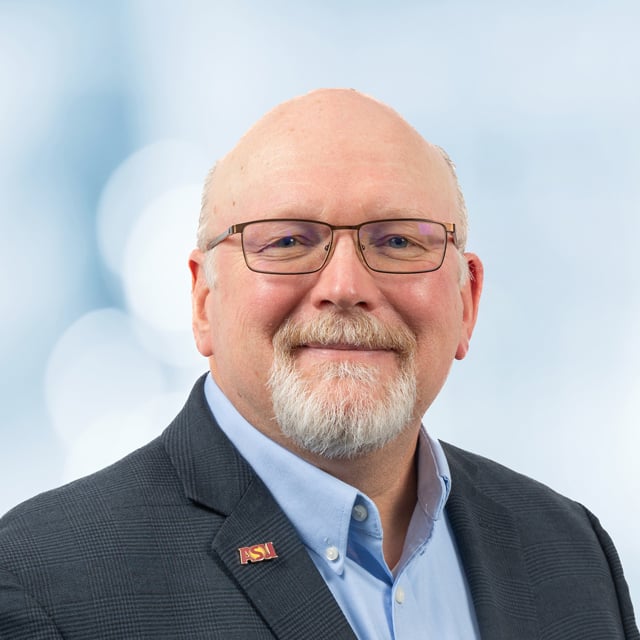Why Become a Financial Planner? For Students, It's Not About the Money

To financial planning students, the chief attraction to the career isn’t that it’s a high-paying one.
The primary appeal, according to Barry Mulholland, clinical associate professor in the finance department at Arizona State University, is that it’s a helping profession. Planners can even start out in a supporting role, he notes, and remain at that level if they choose.
“In recruiting, we say that you can make a very good living [as a planner],” Mulholland tells ThinkAdvisor in an interview. “But [students] aren’t necessarily [wanting the job because] ‘This is one of the high-paying jobs out there.’”
Mulholland, recipient of a 2021 ThinkAdvisor Luminaries award, retired as financial director at the University of Akron’s College of Business in August. He quickly segued into teaching at Arizona State, as planned.
ASU students graduating with a degree in financial planning are prepared to take the CFP certification exam right away, then start work at a firm. Before that, though, they still have a lot to learn to be financially literate, Mulholland maintains.
In turn, they’ll be entrusted to educate their peers, the next-gen clients.
In the interview, Mulholland points out the differences in building a practice in 1999, when he became a broker, and starting out as a planner today.
Here are highlights of our conversation:
THINKADVISOR: Why do your students want to become financial planners?
BARRY MULHOLLAND: Anecdotally, it’s that their family has done planning; and they think it’s neat. Or they’re interested in math and are good at it. Or they like helping people. Or because somebody told them they’d be good at it.
They don’t say it’s because they think they can make a lot of money as a planner?
We promote that these are really good-paying jobs. The [students] don’t specifically bring that up, but I believe it attracts them into the industry.
In recruiting, we, and other financial planning programs, say that this is a helping profession where you can make a very good living.
That gets them thinking about it. But it isn’t one of the reasons I’m hearing that they come into the program. They’re not necessarily looking at it as “This is one of the high-paying jobs out there.”
I hear the helping [reason] a lot.
Tell me about the psychology of financial planning requirement that’s been part of the CFP exam since 2022.
It’s about understanding that sometimes clients’ behaviors are getting in the way of moving forward with their plans. It’s about learning techniques to help them do better.
But advisors often say, “I don’t care about the soft stuff. My job is about numbers.” Your thoughts?
We recognize that the psychology of financial planning is an important piece. It’s one of the things that’s attracting, and will continue to attract, younger folks, especially those that want to be in a helping profession where they can also use their interest in finance, accounting or financial planning-related topics.
What about the sales aspect of a financial planner’s work? How do students see it?
When I came into the industry as an advisor in [1999], it was through a sales role. Now we have many students who are going out to RIAs if they want [to be] client-facing.
But they also have career paths that aren’t immediately client-facing. From talking to students, my sense is that this is part of the attraction for them.
If they want to start off in sales and create a book of business, those opportunities still exist. But they can also come in as a junior associate and have a career path to grow and create a book of their own.
We no longer require cold calling and phoning 100 people you know on Day 1. Now, people are coming in with basic knowledge and skill and get to build on that.
What sort of work does a junior associate do?
They could start in client services, helping advisors get information they need. Or they might come to a local retail operation in a support role where they’re interacting with clients or helping advisors.
So they start off salaried and with an opportunity to learn how the operation works, get experience and over time, take on more responsibility.
How does that contrast with building a business 30 years ago?
Back then, the approach was getting more clients. Maybe we brought in some staff or partnered with somebody.
That model still exists at some firms, but now starting off means that the job is more of a client service associate. That could certainly lead to having your own clients, but a lot of these folks don’t necessarily want that.






